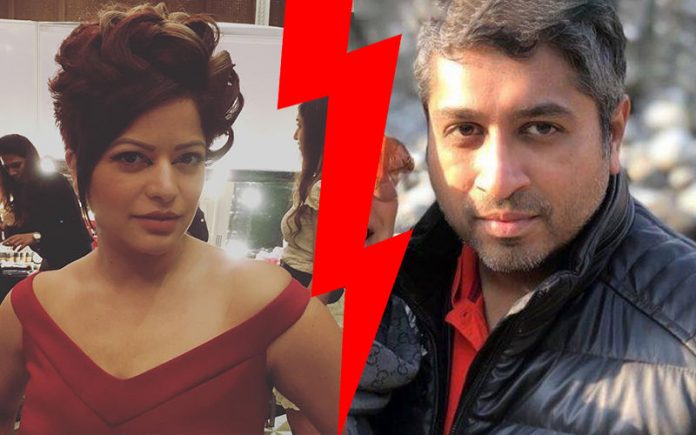The Bombay high court last week rejected the plea of actress Arzoo Govitrikar’s husband, Siddharth Sabharwal, to enter the residence which is owned by himself as he has been accused of assaulting her. Arzoo had filed a police complaint in February against Siddharth, alleging that he repeatedly assaulted her in drunken stupor. She also filed a plaint under the Domestic Violence Act in May. The Dadar (Bombay) metropolitan court the same month ordered Sabharwal to stay out of his house which was their marital home, till further orders.
On 18th October, Justice S.S. Shinde observed that there was nothing wrong with the metropolitan magistarte’s ex parte order. The high court, however, left it to Siddharth to seek alternative remedies to either file an appeal against the magistrate’s order or to appeal before the magistrate and pursue the case further.
Arzoo married Sabharwal in March 2010 and resided with him at their house at Worli in Bombay. She moved out in February following what she referred to as another round of brutal assault. She had filed the police complaint days before she moved out of her house. Sabharwal’s lawyer told the high court that Arzoo did not tell her husband that she had filed a domestic violence case against him. She also did not inform him of the restraining order against him till he boarded a flight back from a business trip in Germany on 29th May. This, he added, in spite of knowing about the order before Sabharwal left for the foreign land. Siddharth’s lawyer also told the high court that Arzoo’s lawyer had misled the magistrate into believing that Siddharth owned multiple residences but did not inform that all those houses had been leased out and hence were not available to him for staying. In response, Arzoo’s lawyer showed the court the various police complaints made by her against Siddharth. The lawyer also cited various Supreme Court judgements to argue that a writ petition should not be entertained by the high court when the person had alternative remedies available. These arguments were accepted by the high court.




























